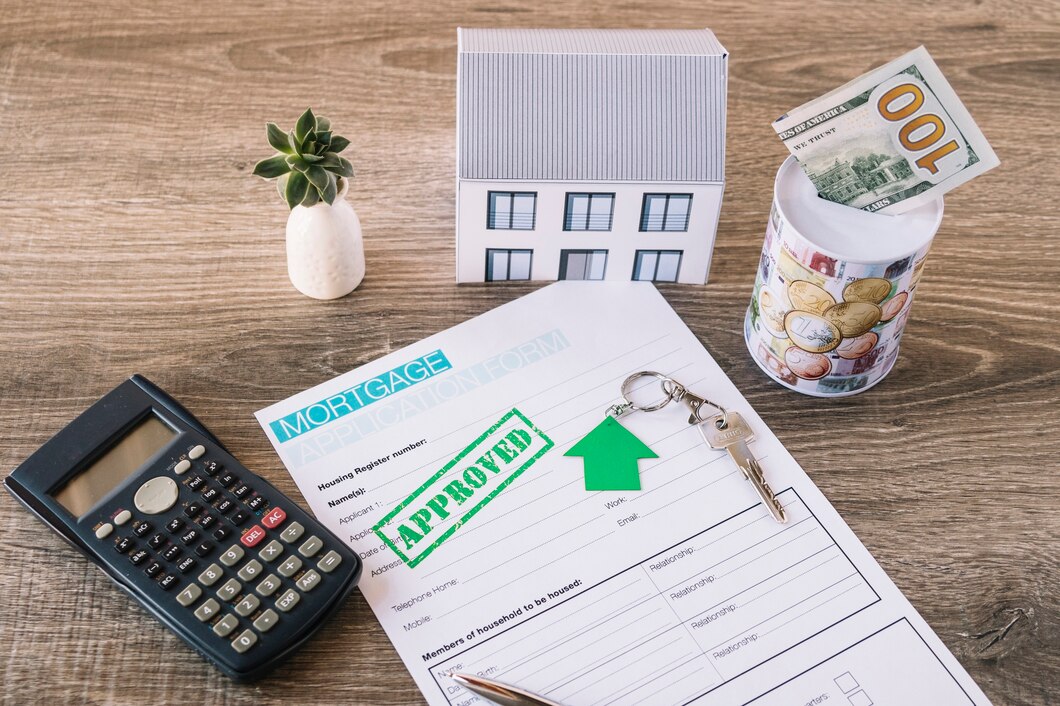The Federal Housing Administration’s mortgage loan program, commonly referred to as FHA loans, makes homeownership more accessible and affordable. With an FHA loan, you can buy a home with as little as 3.5% down and have more flexible credit score requirements than conventional mortgages.
But not all FHA lenders are created equal. Interest rates and fees can vary significantly from one lender to another. So how do you find the best FHA loan lenders near you to get the best deal? This comprehensive guide explains everything you need to know.
Understand FHA Loan Basics
Before starting your search, it helps to understand what FHA loans are and what they offer. Here’s a quick overview:
- Low down payments – FHA allows down payments as low as 3.5% of the purchase price. This makes it easier to buy if you don’t have a lot saved for a down payment.
- Lower credit scores – You can qualify with a credit score as low as 500 with a 10% down payment or 580 with 3.5% down.
- Low closing costs – FHA limits lenders’ closing costs, including origination fees, to 3-6% of the total loan amount.
- Mortgage insurance – FHA loans require mortgage insurance premiums (MIP) to protect the lender from defaults. This increases your monthly costs but allows for lower down payments.
Once you understand the FHA program, you’ll be better equipped to compare lenders and choose the right one for your situation.
Shop Around with Multiple Lenders
The first key to finding the best FHA loan is to shop around and compare quotes from multiple lenders. Rates and fees can vary significantly, so checking with several lenders is essential.
Where should you start your search? Here are some good options:
Mortgage Brokers
Working with a mortgage broker that specializes in FHA loans is highly recommended. Brokers have access to multiple wholesale lenders that don’t work directly with borrowers. This gives you a wider array of loan options.
Brokers also manage the application and approval process for you, potentially saving you time and headache. The right broker will have extensive knowledge of FHA guidelines and loan programs to help you qualify and get the best rate.
Banks and Credit Unions
Banks and credit unions commonly offer FHA mortgages. If you already have accounts with a bank or credit union, check what home loan options they provide. As existing customers, you may also qualify for rate discounts.
The main downside is that banks and credit unions typically have fewer mortgage products than specialized mortgage lenders and brokers. So you may find better FHA deals elsewhere.
Online Lenders
In recent years, online mortgage lenders have become major players in the FHA loan space. Online lenders provide the convenience of getting rate quotes and even completing applications fully online.
Be sure to compare multiple online lenders as their rates and fees can still vary significantly. Avoid lenders pushing you to apply before presenting detailed rate and closing cost estimates.
Mortgage Company Review Websites
Websites like Bankrate and NerdWallet rate and review numerous national mortgage lenders based on affordability, customer service, and more. Reading these reviews can give you a shortlist of top-rated FHA lenders to consider first.
Government Resources
HUD, FHA’s oversight department, provides an official database of approved FHA lenders searchable by location. While barebones, it identifies lenders in your state or region legally authorized to offer FHA loans.
Your state may also have programs pairing FHA loans with down payment or closing cost assistance. Check if any state-specific resources are available to support your FHA home purchase.
Interview Multiple Loan Officers
Once you’ve compiled a list of prospective FHA lenders, the next step is interviewing loan officers from each. Getting quotes from multiple loan officers ensures even better rate and cost comparisons across lenders.
Come prepared with questions covering these key topics:
Types of FHA Loans Offered
There are over a dozen different FHA loan programs, including:
- Basic FHA loans
- FHA adjustable-rate mortgages (ARMs)
- FHA 203(k) rehab loans
- FHA energy efficient mortgages
Ask what FHA products the lender provides and which are recommended for your situation. Make sure they offer the type of mortgage you need.
Interest Rates and Closing Costs
- What are your current FHA mortgage rates?
- How often do you update the rates provided to borrowers?
- What are typical origination fees and other lender closing costs?
Locking in a low rate upfront protects against rates rising later. Yet rates quoted today could decline in the coming weeks, so ask how often they refresh rates. Also, understand that all lender fees are included in your closing costs.
Downpayment and Homebuying Assistance
- Do you offer downpayment assistance programs?
- Are there state/local assistance programs we might qualify for?
Inquire specifically about down payment help since limited savings are often an obstacle for FHA borrowers. Your loan officer should explain available down payment assistance options clearly.
The Approval Process
- How is the approval process and timeline?
- Are there any common holdups you see?
Understanding the full approval and underwriting process will prevent surprises. Ask for time estimates as well to gauge how quickly you can close once under contract.
Prepayment Penalties and Loan Terms
- Are there prepayment penalties or other terms I should know about?
Important loan conditions like prepayment penalties, which hit you with fees for paying off the loan early, can create nasty surprises. Confirm that no such penalties exist and review all loan terms before committing.
Use this list of questions as a starting point when interviewing FHA loan officers. Taking detailed notes on each lender’s responses supports simpler rate and cost comparisons down the road.
Compare Interest Rates, Fees, and Closing Costs
With rate and fee details from multiple lenders in hand, you can now carefully compare loan costs to identify the best FHA deal.
Key items to compare across lenders include:
Interest rate – The base mortgage interest rate significantly impacts your monthly payment. Getting the lowest rate possible is likely your top priority.
APR – The Annual Percentage Rate (APR) encompasses the interest rate plus lender fees expressed as an annual cost. Use the APR to determine the true cost of a loan.
Origination and underwriting fees – Upfront fees charged by the lender to originate and underwrite the mortgage. Shop around for lower fees.
Discount points – Optional charges are paid for further interest rate reductions. Assess if discount points adequately reduce rates to recoup the expense long-term.
Closing costs – Total costs paid at closing, including lender fees, third-party fees, prepaid interest, escrows, and more. Closing costs for FHA loans are capped at 3-6% of the loan amount.
Down payment and mortgage insurance – The down payment, mortgage insurance premiums, and loan funding fee hugely impact your total cash to close. Account for these when budgeting and comparing overall affordability.
Crunch the numbers in a mortgage affordability calculator for each FHA lender you consider. This will reveal which option truly provides the most savings over the life of your loan.
Armed with rate and cost details from multiple lenders, selecting the best FHA loan offer becomes straightforward.
Read Lender Reviews and Complaint Data
Thus far, we’ve focused solely on FHA loan rates, fees, and costs when comparing lender options. But customer service and reviews also differentiate lenders.
Checking customer feedback and reviews gives you further insight into lenders before choosing one. Look for:
Industry review sites – Websites like NerdWallet, Bankrate, LendingTree, and more rate FHA mortgage lenders based on affordability, customer experience, and more. Consider top-rated lenders first.
Individual reviews – Personal reviews from past customers on Yelp and Zillow provide candid client feedback on loan experience, customer service, and more.
Complaint data – The CFPB publishes mortgage lender complaint figures. While complaints happen at all lenders, significantly more spell potential issues.
Positive feedback and minimal official complaints suggest smoother mortgage experiences. Customer input provides helpful tiebreakers when choosing between equally matched FHA lenders on cost alone.
Check for Licensing and Legal Issues
Lastly, confirm your prospective lenders have valid licensing, clean legal records, and proper certifications.
Verify State Licenses
Mortgage lenders and brokers must register with the Nationwide Multistate Licensing System to prove they are legally authorized to operate in a state.
Lookup lenders here to validate licenses or disciplinary actions against them:
- Nationwide Multistate Licensing System (NMLS)
- Your state’s financial industry regulatory site – e.g. California’s Department of Financial Protection and Innovation
Additionally, HUD’s FHA lender database confirms registration to issue FHA-insured mortgages.
Search for Legal Judgments
Court records databases report whether lenders faced serious federal regulatory actions – think fraud charges or major financial penalties:
- Justice Department
- Federal Trade Commission
Ideally, your prospective lender shows no concern for legal history.
While tedious, double checking licenses and legal records certifies lenders are legitimately allowed to operate and have clean track records. Don’t risk working with illegally operating or fraudulent lenders to save a few bucks.
Choosing Your Best FHA Lender
After thoroughly comparing multiple lenders on interest rates, costs, reviews, licenses, and more, picking the right one gets far simpler.
Here are some quick final tips for choosing an FHA lender:
- Prioritize understandable communication – Loan officers who clearly explain rates, fees, options, and processes make financing smoother.
- Consider discount opportunities – Some credit unions and banks offer rate discounts for existing members opening a mortgage.
- Weigh closing timeline – Closing faster may justify slightly higher rates if needing to purchase within a tight timeframe.
- Go with top reviews – Positive customer feedback suggests an overall better financing experience, boosting confidence in your choice.
Don’t fear walking away if terms change or new issues appear later – even after submitting an application. Plenty of reputable FHA lenders exist, so keep searching until everything checks out with one.
Bottom line – finding the right FHA loan lender centers around asking tons of questions then verifying everything claimed about rates, fees, and more. But picking correctly nets huge savings and better service over your mortgage’s lifetime. So take the time upfront to make the smartest choice possible.
To Recap
With some diligent research and asking the right questions, finding a five-star FHA lender at the fairest price becomes very feasible. Taking these six key steps makes identifying and securing your best FHA mortgage option far less intimidating:
- Understand general FHA loan qualifications and benefits
- Gather rate quotes from multiple sources – brokers, banks, credit unions, and online lenders
- Interview loan officers and ask detailed questions about rates, fees, and programs
- Compare quotes for the lowest interest rates and costs overall
- Verify strong customer reviews and minimal official complaints
- Confirm licenses and certifications to operate legally
While not a quick process, taking the time upfront to shop extensively benefits you exponentially over the 30-year course of homeownership. So tackle the work head-on to score your perfect FHA loan match!
Frequently Asked Questions about FHA Lenders
How do I know which FHA lender is right for me?
The best FHA lender ultimately depends on your financial situation and mortgage needs. Weigh factors like:
- Who offers the lowest interest rates and total costs?
- Which lenders have my preferred loan types and programs?
- What are their customer service reviews like?
- Do they have a local branch or convenient online process?
Create a checklist based on your biggest priorities – cost, convenience, service level, etc. Then see which lenders best align.
Taking the time to compare multiple lender options ensures you select the very best match for your circumstances.
Should I use a big bank or small mortgage company for my FHA loan?
Both large banks and smaller lenders have tradeoffs to weigh:
Big banks usually have:
- Lower interest rates thanks to large capital reserves
- More physical branches for in-person service
- Established brand recognition and history
Small lenders tend to offer:
- Lower fees and closing costs
- Quicker mortgage approval and funding
- More personalized customer service
Think through what matters most – low rates or low fees? Local branches or fast approvals? Then focus your search appropriately.
Using a broker also helps compare options from both buckets. A good broker will explain the pros and cons of lenders big and small to make the best choice easier.
How much can I negotiate with FHA lenders on interest rates & fees?
FHA sets maximum mortgage insurance premiums, caps closing costs between 3-6% of loan value, and establishes minimum credit standards. Yet individual lenders determine your actual mortgage interest rate and any discount points or lender fees charged.
This means you have very little leeway in negotiating FHA’s fixed program costs, like mortgage insurance or down payment amounts.
However, significant rate negotiating happens between lenders on interest rates and lender fees. That’s why getting multiple rate quotes is critical – to then negotiate amongst them for the best deal possible.
Bottom line – shop hard between FHA lenders to get ultra competitive on rates and lender costs. Just don’t expect to budge too much on embedded government fees and mortgage insurance.














